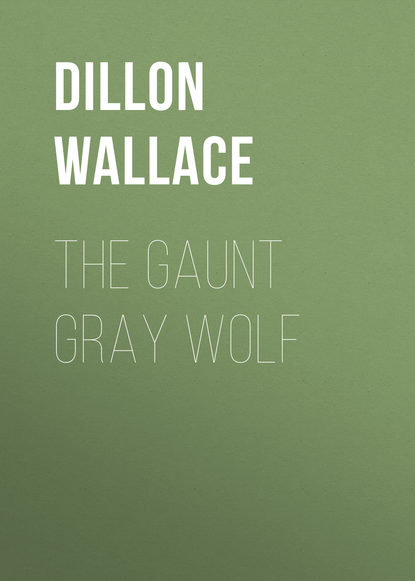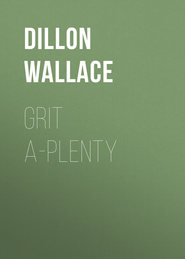По всем вопросам обращайтесь на: info@litportal.ru
(©) 2003-2024.
✖
The Gaunt Gray Wolf
Настройки чтения
Размер шрифта
Высота строк
Поля
"She heard how they drove the two white invaders of our country into the arms of the evil spirits, whose thunderous voices she hears even now. It was well. White men have come into our land and have made the spirits angry. When the spirits are made angry they drive away the caribou. Then the people of the South and Sishetakushin's people are hungry. The white men have built lodges of trees near the potagan (portage) of our fathers. They stored these lodges with much tea and tobacco, flour and pork. Without these things the white man cannot live, for he is not like our people.
"Other white men are coming to our country. If these stores are left in the lodges near the potagan of our fathers, the white men will stay. If they do not have these things, they will go away, for without them they will be hungry.
"The men of Sishetakushin's people and the men of the South cannot remove them, for the evil spirits dwell there, and would do them harm.
"But Manikawan is a maiden. The evil spirits will not harm her. She is too humble for their notice. Manikawan has gone to the lodges of the white men and has removed the things from the lodges, so that the white men will not find them when they come.
"The men of the South are brave. They have sent two of the white men into the arms of the evil spirits. They must be rewarded.
"Manikawan has carried much tobacco and tea and other stores to the place where the potagan reaches up from the river. These things are for the men of the South. Let them bring their canoe. Manikawan will show them the things and they will take them."
The Indians did not deign to reply at once, but presently one of them said:
"Let Manikawan bring the things to the lodge of the men of the South. She is a maiden, and it is a maiden's work. It is not the work of a hunter."
"Manikawan is not of the lodge of the men of the South, and she will not do this. She will wait at the place where the potagan rises from the river until the sun is there;" and Manikawan pointed to the zenith. "If the men of the South do not come, she will go, for she will believe the men of the South do not need tea and tobacco."
"Let the maiden return to the place where the potagan rises from the river. Let her wait there. The men of the South will come," said the spokesman.
Manikawan turned away, down the river bank, by the route she had ascended. Her progress was dignified and unhurried so long as she might still be seen by the Indians, but was quickly changed to a run the moment she was beyond their view.
Glibly she had lied to them and her conscience was not troubled. She was not a Christian. The savage teaching upheld subterfuge in dealing with the enemy, and she deemed these Indians her enemies, for had they not destroyed White Brother of the Snow? And was he not of her people by adoption.
Immediately Manikawan arrived at the portage trail she looked sharply about to make certain she was not observed. Then she examined the rifle behind the bowlder, and, quite satisfied with her inspection, returned it to its resting place and waited.
She knew that the two Indians, with due attention to their dignity, would make no haste in their coming, and would doubtless keep her waiting until the noonday hour which she had designated, but nevertheless her lookout up the river was never for a moment relinquished. She watched as a cat watches a hole–from which it expects the mouse to emerge–ready to pounce upon the unwary prey.
At last she was rewarded. A birch-bark canoe containing the two Indians came leisurely gliding down the river some hundred yards from shore. Manikawan, like a beautiful statue, stood tall and straight at the end of the portage trail. Two paces from her the rifle lay behind the bowlder.
The Indians, unsuspecting, turned the prow of the canoe toward the shore where she stood. Still she did not move. The cat waits for its victim until the victim beyond peradventure is within reach of its spring. Nearer and nearer drew the canoe. Still Manikawan stood, a graven image. She was looking out and beyond her intended victims. The roar of the distant rapids, and the monotonous, thunderous undertone of the falls were in her ears, and they came to her as beautiful music. The canoe was now but a hundred feet from shore.
Suddenly, Manikawan sprang, and the astonished Indians beheld the statue with a menacing rifle at its shoulder. Then came a flash and a report. The Indians ducked, and the blade of the steersman's paddle, poised in mid-air, was shattered by a bullet.
Manikawan spoke, her voice ringing out in clear, even tones:
"The men of the South sent White Brother of the Snow and his friend into the arms of the evil spirits. White Brother of the Snow was of Manikawan's people. The men of the South are the enemies of Manikawan's people. They are cowards and they must die."
The Indian at the bow paddled desperately away from shore and the menacing rifle. The Indian at the stern made equally desperate but ineffectual attempts with his broken paddle.
Another shot rang out, and the bowman ducked, and ceased paddling as a bullet sang past his head. Immediately the canoe began drifting, and a moment later the strengthening current caught it.
Then the Indians, alive to this new danger, disregarding bullets, rose to their feet and paddled desperately, the one in the stern seeming not to know that the broken stick he held was useless. They knew that the evil spirits had reached up for their canoe and were drawing them down–down–to something worse than death. Their faces became drawn and terror-stricken.
Faintly, and as a voice far away and unreal, they heard Manikawan's taunts as she ran down the high banks of the river, keeping pace with the doomed canoe and its occupants going headlong to destruction:
"The men of the South are cowards. They are afraid to die. The evil spirits are hungry, and soon they will be fed. Their voices are loud. They are crying with hunger. The men of the South will feed them."
XII
THE TRAGEDY OF THE RAPIDS
The two adventurers marooned on the island ate their first meal of rabbit, grilled over the coals, with keen relish, though they had neither salt to season it nor bread to accompany it.
"It might be worse," remarked Shad, when the meal was finished. "Rabbit is good, and," he continued, lolling back lazily and contentedly before the fire, "there's always some bright spot to light the darkest cloud–we've no dishes to wash. A rinse of the tea pail, a rinse of our cups, and, presto! the thing's done. I detest dish-washing."
"Aye," admitted Bob, "dish-washin' is a putterin' job."
"Yes, that's it; a puttering job," resumed Shad. "But now let's come to the important question of the day. Continued banqueting upon rabbit, I've been told, becomes monotonous, and under any conditions imprisonment is sure to become monotonous sooner or later. I have a hunch it will be sooner in our case. I'm beginning to chafe under bonds already. What are we going to do about it?"
"I'm not knowin' so soon," confessed Bob, "but I'm thinkin' before this day week Dick an' Ed an' Bill will be huntin' around for us, an' they's like t' find us, an' when they does they'll be findin' a way t' help us. They might build up th' place down there with stones, so's t' make a footin' t' land on, an' then 'twill be easy goin' ashore."
"But suppose they don't come around this way and don't find us?"
"Then I'm thinkin' we'll be bidin' here till ice forms."
"Till ice forms! And when will that be?"
"An' she comes on frosty, ice'll begin formin' th' middle of October on th' banks. But th' current's wonderful strong, an' I'll not be expectin' ice t' cross on till New Year, whatever."
"January first! October! November! December! Three months on this god-forsaken bit of rock! Great Jehoshaphat, man! That'll be an eternity! We can't endure it!"
"I'm not thinkin' we'll have to. I'm thinkin' they'll find us in a fortni't, whatever," reassured Bob, rising and picking up the axe. "We'll be needin' a shelter, an' I'm thinkin' I'll build un now."
"And we have no blankets with us!" exclaimed Shad. "Oh, we're going to have a swell time!"
"We'll be fair snug with a shelter, now. I'll be cuttin' th' sticks, an' you breaks boughs."
"All right, Bob, I'll get the boughs," agreed Shad, languidly rising, and as he went to his task singing:
"'Old Noah, he did build an ark,
He made it out of hick'ry bark.
"'If you belong to Gideon's band,
Why here's my heart, and here's my hand,
Looking for a home.
"'He drove the animiles in two by two,
The elephant and the kangaroo.
"'And then he nailed the hatches down,
And told outsiders they might drown.
"'And when he found he had no sail,
He just ran up his own coat tail.
"'If you belong to Gideon's band,
Why here's my heart, and here's my hand,
Looking for a home.'"








